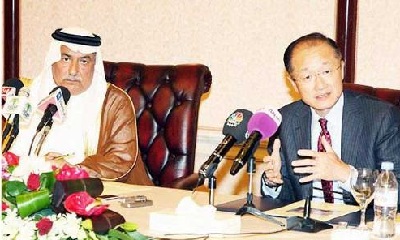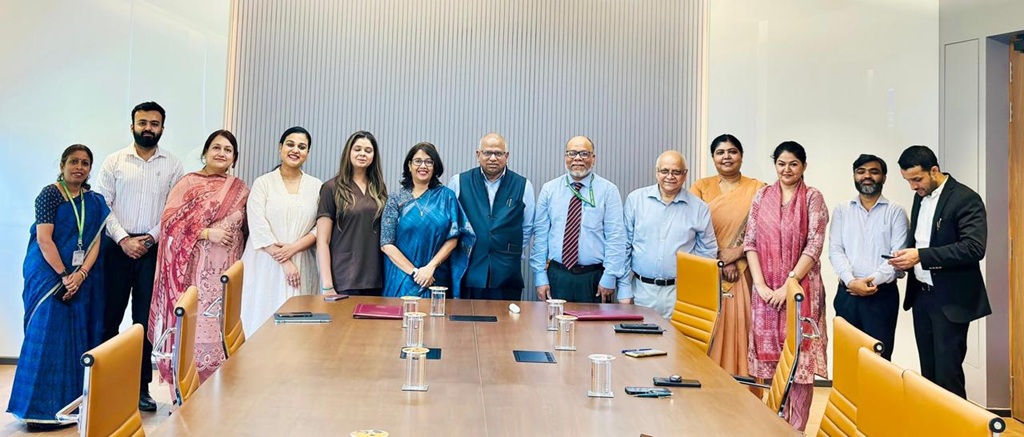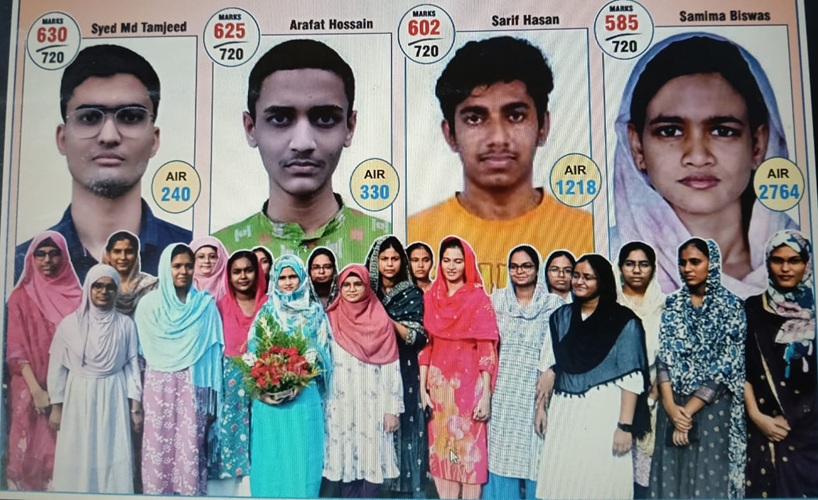JEDDAH – The World Bank Group seeks to strengthen partnerships with Saudi Arabia and Arab development funds to improve trade and transport within and between countries, and to scale up support for countries undergoing political transitions, World Bank Group president Jim Yong Kim said Sunday evening here during a joint press conference with Saudi Minister of Finance Dr. Ibrahim Al-Assaf after their talks.
Saudi Arabia and the World Bank have been partners under the framework of the Technical Cooperation Program (TCP). In 2007, the program moved toward longer-term strategic planning for better focus on results and impact. This is Kim’s first visit to the three countries since taking over as president of the World Bank Group in July 2012.
Saudi Arabia contributed $ 3.25 billion to support Yemen’s transition process, and also co-hosted along with Britain the “Friends of Yemen” – a group of countries and intergovernmental organizations that came together to assist Yemen during the transition process.
Kim said: “The World Bank’s strategy in the Middle East region is to work with its partners to build on the foundation of coexistence, good governance, and inclusive economic growth.” He said Saudi Arabia, which joined the World Bank in 1957, has been working closely with this institution.
Noting that the bank is aiding Jordan and Lebanon cope with the impact of influxes of refugees escaping ongoing conflict in neighboring Syria, Kim highlighted the need of the international community providing more help to the two countries.
Kim, who is on a four-day trip to Saudi Arabia, Lebanon and Jordan, underscored the importance of economic partnerships, good governance, transparency, and jobs for women and youth.
Kim’s visit is also aimed at rallying for Jordan and Lebanon, which have taken in close to two million Syrian refugees.
“The Middle East today is at a crossroads,” Kim said in a statement released by the World Bank on Monday. “In one scenario, the political crises, violent conflict and deteriorating economic conditions of the last three years could deepen and possibly spread to neighboring countries. But we must commit to another more optimistic scenario for the region to realize its potential for sustained growth,” he added.
In Lebanon, roughly one quarter of the population is now Syrian. A World Bank assessment of the impact estimated that GDP dropped 2.9 percent a year between 2012 and 2014.
He noted that the World Bank Group is working with development partners to “provide all the necessary support at this critical juncture.” That includes financial commitments, which have been steadily growing in recent years and now stand at $16 billion in the region. New commitments in fiscal year 2014 (July 1, 2013 to July 1, 2014) are close to $5 billion, he pointed out.
“The international community needs to step up its support to the Jordanian and Lebanese hosting communities,” said Kim.
“The people of these countries have demonstrated unprecedented generosity. They should not be left to shoulder this crisis alone,” the World Bank Group president added.
At the joint press conference with Al-Assaf, Kim highlighted the urgency for the international community providing more help to the two countries.
“I visit the Middle East at a moment of tremendous challenges. I am optimistic, however, that a brighter future for the next generation is within reach,” Kim said.
The World Bank has also been sharing the lessons learned from its work around the world on how to turn a vibrant private sector into an engine of inclusive growth, and the role good governance and transparency play in creating effective and accountable institutions.
To help Lebanon, he further said, the Bank created a Multi-Donor Trust Fund for grants from donors and partners. Norway has already contributed, and France and Finland recently made pledges, with other donors expressing interest. The Bank has contributed USD 10 million from the State and Peace Building Fund.
For Jordan, the bank provided rapid financial assistance of $150 million in July 2013 to help the country cope with the influx of refugees.
An additional $60 million grant was made in October 2013 by the Bank and a number of development partners including the United Kingdom, Canada, Switzerland, and the Arab Fund. An additional $1250 million was approved on March 13, 2014.
The UN made its largest-ever humanitarian appeal for $6.5 billion for 2014 to support aid organizations’ response to the massive humanitarian needs in Syria and neighboring countries. Some $2.3 billion was raised at the January 2014 Kuwait Donor Conference.






0 Comments